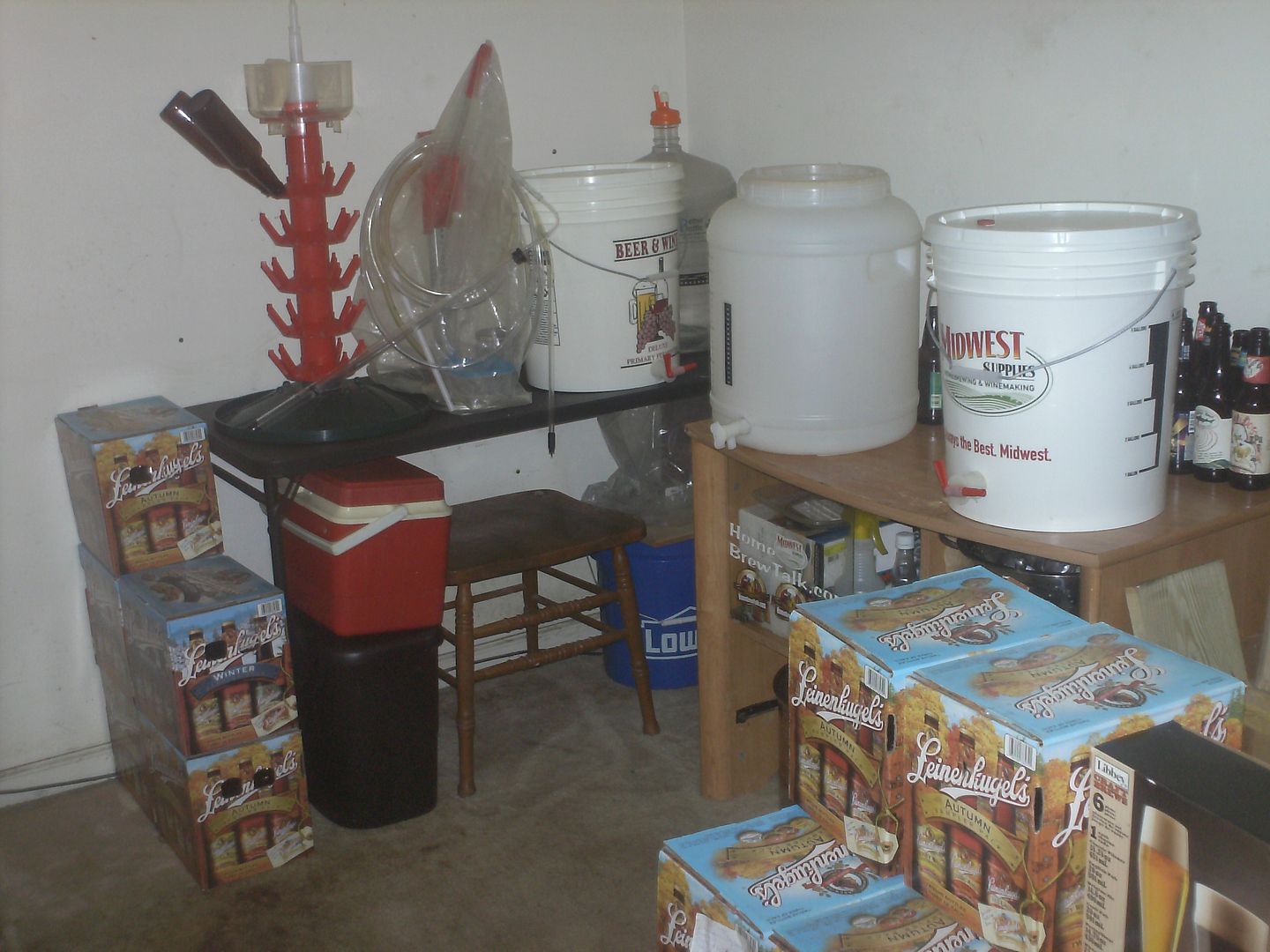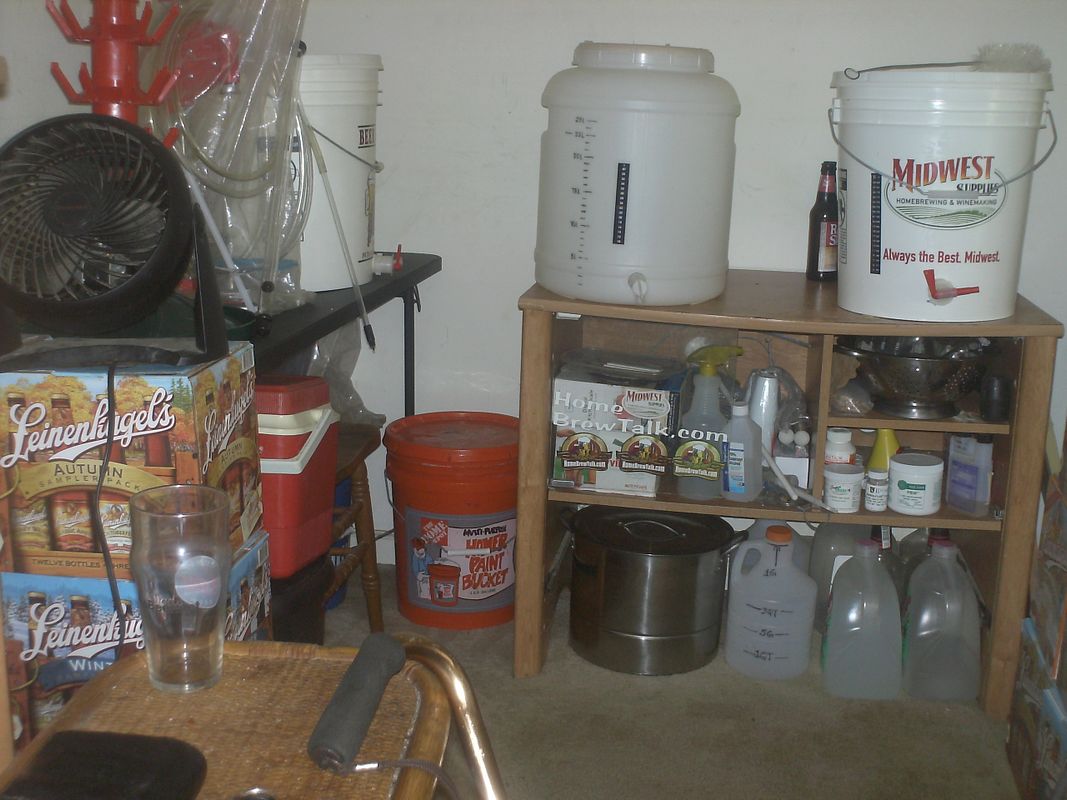I am 10 extract batches in. I have never purchased any temp control devices and I don't think my beers have been anything short of good. Would I like to down the road? Sure, but there are other things I am glad I have instead.
Here are the essentials:
1. 6.5 gallon primary bucket - the cheapest place to let your beer ferment - about $16
2. A spoon - metal or plastic to stir ingredients - less than $5
3. An airlock - a little piece of plastic that helps you gauge Co2 release during fermentation - $1.50
4. A kettle. Bigger is better, but starting with a 5 gallon stainless steel kettle is fine for a beginner. You can find these online for $20. I would not use this kettle for any other cooking. I kept mine exclusively for beer only.
5. A bottling bucket - you'll transfer your fermented beer into this other bucket on bottling day
6. A bottle capper - used to cap your freshly bottled beers
7. Tubing - used to transport the beer from the primary bucket to the bottling bucket on bottling day.
8. Auto siphon - see descriptor for no. 7
9. Thermometer - essential to keep water and wort at certain temps at various stages
10. Hydrometer - While not "essential" for a beginner, it's the only way to really know if fermentation is complete. That being said, 95% of beers you'll do as a beginner will be done fermenting if you just let them sit in the primary for 2 weeks.
11. OxyClean - Some will say always buy BPW or some other home brewing CLEANER, but I find OxyClean works fine and is cheaper. I've never had any infections.
12. Sanitizer - Oxy Clean works to CLEAN your equipment, but a sanitizer like StarSan or Iodophor is truly essential to keep bacteria from contaminating your batch.
This would be fine to start:
http://www.northernbrewer.com/shop/...arter-kits/essential-brewing-starter-kit.html
Later on, you might want to get a BIGGER kettle to do full volume boils, meaning instead of adding 2.5 gallons of water to your wort, you'll boil all the wort together. You'll also want to add a wort chiller because doing ice baths is cheap and easy, but it's also annoying and slow. Wort chillers will cool your wort a lot faster.
Yeast starter kits and stir plates would also be something to look at, though I myself have not done either and I'm 10 batches in. I either just pitch the WYeast Smack Pack directly into the wort or pitch dry yeast (cheaper and you get more yeast cells).
AS you can see, brewing is like any hobby. It's cheap to get started and make good beer. However, if you're like most, you'll just continue to add to your resources with time and experience.


























![Craft A Brew - Safale S-04 Dry Yeast - Fermentis - English Ale Dry Yeast - For English and American Ales and Hard Apple Ciders - Ingredients for Home Brewing - Beer Making Supplies - [1 Pack]](https://m.media-amazon.com/images/I/41fVGNh6JfL._SL500_.jpg)

































